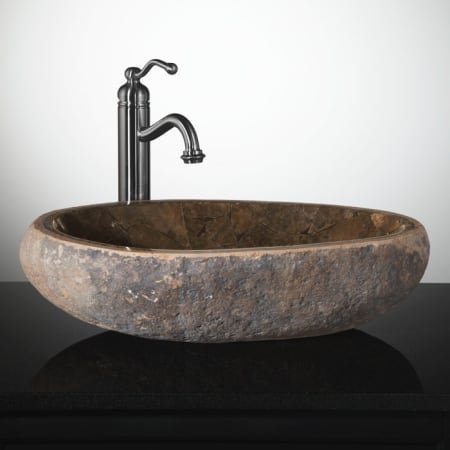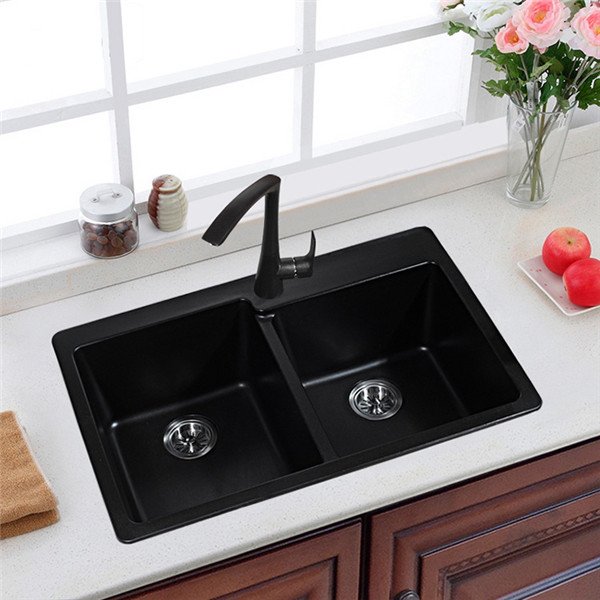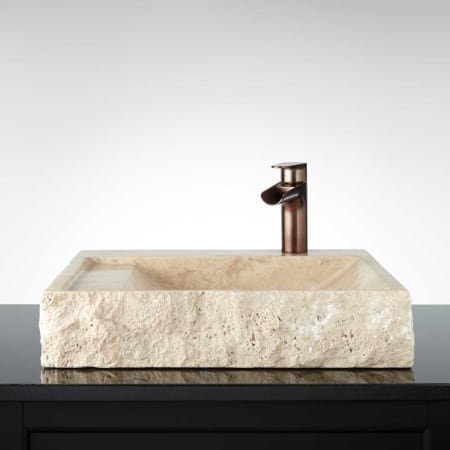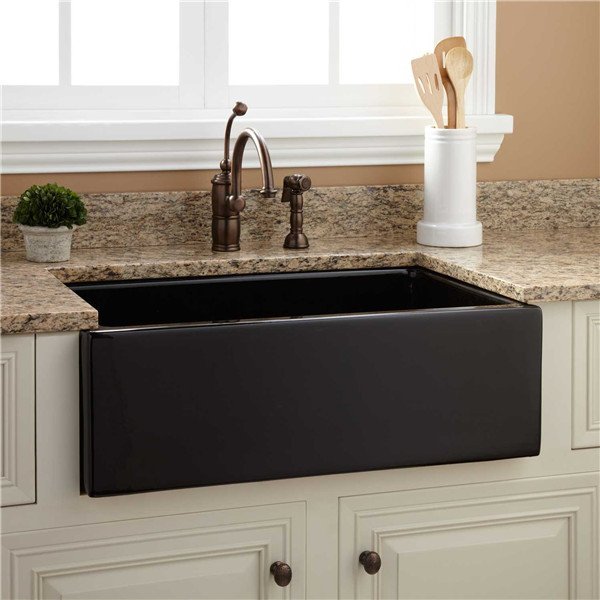Thanks to technological advancements, you’re no longer limited to a particular type of sink. You have a lot of choices.
Two such choices are the quartz composite sink and the solid granite sink. In this article, I’ve included a comparison and the pros and cons of both types of sinks.
Let’s get right to it!
In Terms Of Porosity
Porosity is an important characteristic when it comes to selecting your sink. It influences the sink’s sensitivity to stains, and some other elements lie in the sink’s sturdiness that contributes to the lifespan of the sink.
Long story short, porosity is essential.
When it comes to the two sinks at hand, solid granite sinks have a higher porosity than quartz composite sinks. However, a higher porosity isn’t an indicator for a higher quality sink.
A higher porosity means that the sink’s surface will be more absorbent than a lower porosity sink. This means that the sink is more prone to stains and can be easily stained by drinks and foods. This can make the sink breeding ground for various types of bacteria as well.
Since quartz is less of a porous material, it is less vulnerable to stains. However, at the same time, this can be a problem in places where the temperature is much more than usual. The non-porosity of quartz also means that it cannot repel as much heat as its other counterparts.

In Terms Of Aesthetic
The first thing you notice about the sink is its looks, whether it looks neat and clean or rough and rugged.
When it comes to choosing between the quartz composite sink and the solid granite sink, you should know that quartz composite sinks are the ones that offer more variety when it comes to styles and designs.
At the same time, I believe that beauty is in the eyes of the beholder. You can be a better judge of this aesthetic as only you decide what is more appealing to you. The granite sink offers more unique designs, while the quartz composite sink offers more variety.
Now it is up to you what you find more appealing and more suitable for your kitchen.
In Terms Of Durability
Another factor that can influence your buying decision is the amount of durability the sink should offer. Homeowners consider durability as an essential factor when it comes to buying a sink.
It is also essential to consider how much effort you have to put in to maintain the sink.
There’s a scale of hardness, called the Moh’s scale of hardness, that ranks the hardness of different types of sinks. Quartz composite sinks rank at seven on this scale of 1 to 10, while granite is a solid 6.
This means that granite is inferior to quartz composite sink when it comes to hardness. This means that quartz is more durable.
At the same time, quartz is also heavy and is difficult to install. As you see, with a pro also comes a con, so there can be no true winner on the bigger scale.

In Terms Of Maintenance
As mentioned before, quartz is non-porous, which makes the sink more compact. Granite has many small holes on the surface of the sink, which makes it a little harder to maintain. Moreover, granite is more absorbent to stains.
This makes quartz composite sinks much easier to maintain. When it comes to granite composite sinks, it is recommended that you seal the material so that its life is prolonged.
In Terms Of Cost
Cost plays a significant role in the decision-making process of most people. Despite actually wanting something, people can still not opt for it since it costs too much. People have specific budgets to stick to, which makes this a significant factor.
In comparison, quartz composite material is generally cheaper than solid granite. However, this is only valid for the fundamental kinds, and the prices will vary from design to design. There is also a cost of installation that is included in the total cost of the sink. You need to be mindful of this cost as well.
Quartz is generally the most expensive stone to install, and the installation charges that come with it are immense. However, when it comes to maintenance, quartz is cheap to maintain.
In Terms Of Origin
When it comes to origin, quartz is synthetic, while granite is natural. This means that quartz is more refined since it is manufactured synthetically.
All the impurities are taken care of when it comes to quartz composite sinks.

In Conclusion
Quartz composite sinks and solid granite sinks offer several advantages and disadvantages simultaneously.
I have listed out most of these advantages and disadvantages. You are the judge now.
Decide what suits you best in terms of cost, maintenance, durability, porosity, and aesthetics. Make an informed decision about the sink that you’re going for.
I hope this article helped you in making your decision.
Good luck!

